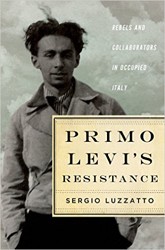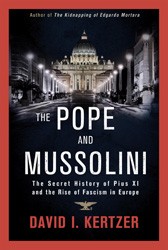In this relatively brief book, historian Simon Levis Sullam presents a compelling argument about the role of Italy and Italians in the Holocaust. Heretofore, with some exceptions, the prevailing opinion on Italy’s treatment of Jews has been benign. In contrast with Jews who lived in Germany and many countries in Eastern Europe, a majority of Italian Jews survived; there were no widespread massacres in the country. “Only” 20 percent of the Jewish population was deported to Nazi death camps, largely at the hands of the Nazi forces that occupied northern Italy after September 1943. Most Italians considered themselves to have not been complicit in the depredations carried out by the Nazis, and surviving Jews have recognized the role of “good Italians” in their survival — or so the story, which Sullam considers a myth, goes. Considering the breadth and depth of Sullam’s indictment, his language rarely rises above academic neutrality. But this is clearly a book infused with moral passion. As he states in his acknowledgements, this book is“first and foremost an ethical and political gesture.”
Originally published in Italian in 2015, Sullam’s book joins a growing library of accounts of the Shoah that focus on the role of ordinary citizens in the carrying out of genocide. In Sullam’s account, the rounding up and deportation of Italian Jews was, to a greater extent than most Italians know or are willing to recognize, the work of Italians themselves. In the postwar period, for various psychological and political reasons, Italy’s role in the Shoah (especially in the so-called Republic of Salò in northern Italy after the Allied invasion of the peninsula in 1943) was whitewashed from public memory. Antisemitism was not considered to be an Italian trait, but the product of Mussolini’s political expediency, to curry favor with his Axis partner, Hitler. In the postwar period, few Italians were tried or convicted of crimes against Jews, and many who were convicted were granted amnesty. Leading Fascist officers and judicial officials went on to hold prominent governmental positions. As David I. Kertzer asserts in the book’s foreword, “Italy has yet to come to terms with its uncomfortable past.”
That past, in Sullam’s reckoning, includes a high degree of official Fascist, antisemitic propaganda, and legal restriction independent of that of Nazi Germany; widespread involvement in identifying, rounding up, and transporting Jews to concentration camps and Nazi death camps; informing against Jewish neighbors or those in hiding; outright betrayal by people ostensibly helping Jews escape; and a good deal of quiet complicity on the part of ordinary citizens who saw what was happening to their Jewish neighbors but said or did nothing. In Sullam’s view, “culpability does not belong only to those who personally carried out arrests.”
Parts of the book’s argument draw on previous scholarship, but there is a lot of new documentary and archival material that substantiates Sullam’s case. Most chilling is the account of official antisemitic propaganda that identified Jews as a cancer in the body politic and called for their elimination and extermination. This was a thread in Fascist ideology that was, for the most part, kept under wraps during the first decade and a half of Mussolini’s regime (many Jews were members of the Fascist party), but that came into full view with the promulgation of the racial law of 1938 — which Sullam, along with others, sees as not merely a bid by Mussolini for Hitler’s favor. Also disturbing is Sullam’s depiction of the roundup of Jews in Venice while the rest of the city went about its business and leisure.
Sullam reminds us of the complex nature of what he calls the “dynamics of genocide.” Beyond ideological belief, other factors motivating individuals to participate in genocide include personal vendetta, fear of reprisal for non-participation, and sheer opportunism. This complexity underscores the difficulty of providing a full account of these events, since documentary evidence of the actions and motivations of ordinary citizens is lacking. The role of the Catholic Church adds yet another layer to the Italian role in the Holocaust. Sullam does not discuss this contentious issue in his account, but with the promised opening of the archives of Pope Pius XII in the near future, this aspect will receive renewed attention and deepen the debate over personal and institutional responsibility.





